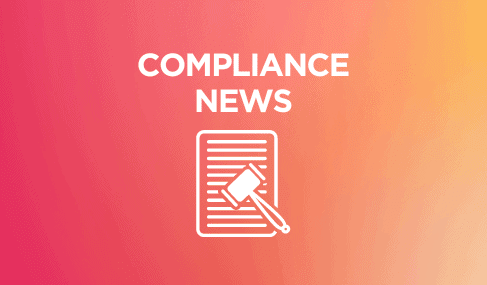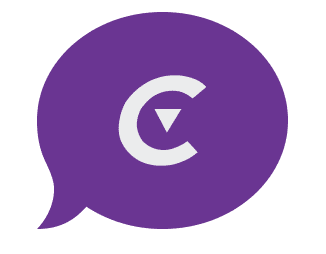
In the wake of the Supreme Court’s Facebook v. Duguid ruling last year, some call centers may have breathed a little easier. The ruling, which clarified the definition of autodialer under the TCPA, seemed to simplify TCPA compliance matters for outbound dialing companies.
However, with so-called “mini-TCPA” laws popping up in states across the country, there’s a whole new set of state-level laws businesses need to be mindful of. Florida’s mini-TCPA, the first of these, went into effect in June 2021. This year, Oklahoma and Washington got their own laws on the books.
Now, Michigan may be poised to do the same, after lawmakers in the Michigan House recently introduced House Bill 6307, known as the Telephone Solicitation Act.
What’s in the Michigan Telephone Solicitation Act?
So far each of the state mini-TCPAs have come with their own variations, and Michigan’s is no different. Key provisions of the bill include:
- Up to a $25,000 civil penalty per violation, up to $75,000 per violation if the consumer is over 75 or disabled, and up to $100,000 for each persistent and knowing violation if the consumer is over 75 and disable.
- There is also a private right of action of $1,000 per call plus attorney’s fees.
- Call times restricted from 9:00AM-8:00PM. (Call times are currently restricted between 9:00AM and 9:00PM.)
- The use of prerecorded calls to make marketing messages would be banned.
- Marketers must keep, for up to 4 years, records relating to their calls.
- At the beginning of the call, the caller must disclose their full name, as well as the name, address, and telephone number of the organization on whose behalf they are calling.
- Autodialed calls without consent are prohibited, as are calls made to numbers on the National Do Not Call Registry.
In addition to these restrictions, the bill is notable for the way it defines an automated dialing system. Rather than use the term “automatic telephone dialing system,” or ATDS, as the TCPA does, the law invokes the term “automatic dialing and announcing device,” or ADAD. The ADAD is defined as follows:
“Any device or system that is used, whether alone or in conjunction with other equipment, for the purpose of automatically selecting or dialing telephone numbers.”
As Attorney Brittany A. Andres of the Troutman Firm notes, this definition is something that decision-makers and compliance managers will need to be cautious of, given that any device used “in conjunction with other equipment” will be treated as an ADAD under the law, and will require express written consent.
RELATED CONTENT
Explore other TCPA compliance trends you need to watch in 2022
Is This the Future of Outbound Calling Regulations? What Call Centers Need to Know
While the bill’s limitations and steep penalties have captured some attention, the bill is not actually as stringent as, say, Florida’s mini-TCPA. For example, as attorney Eric Troutman pointed to in a recent webinar that included a deep dive into the language of the bill, the Michigan Telephone Solicitation Act does include a much clearer exemption for existing business relationships. Instead, the bill is more geared toward regulating lead generation and solicitation calls.
In doing so, Troutman says, the bill seems to achieve a pretty well-balanced approach. “The Michigan Telephone Solicitation Act might be the future.” While previous state-level laws like Florida’s mini-TCPA feel slapped together and possess internal conflicts, Troutman says the Michigan bill appears more thoughtfully crafted. “This is not some goofball political stunt. This is a thoughtful, very comprehensive, and pretty well balanced effort to regulate outbound calling, and particularly sales calls. It feels like something other states might want to copy.”
Regardless of what the future holds for outbound calling regulations, Convoso’s Compliance Officer, Tammy Glover Fowler, urged businesses to react with calm. “Companies who conduct compliant telephone solicitation calls should not be afraid of Michigan’s Telephone Solicitation Act,” she said. “This means that you are already in the habit of obtaining prior express written consent to place calls using an ADAD, and you already exclude calls to consumers whose phone numbers are on state and federal Do Not Call lists.”
Additional best practices she outlined that should allay call center fears about the new proposed Michigan bill include:
- State-specific verbal disclosures are already required, so making an adjustment to them should be relatively easy.
- You understand and comply with the Truth in Caller ID Act and do not mask your identity or display misleading or fraudulent caller identification information; therefore, you agree with Michigan’s rule on this topic.
- The FTC restricts placing calls outside of 8am-9pm (local time at the location called), so you currently set the appropriate, allowable calling times, and shortening your settings for Michigan will not be a problem.
- Advance notice of this rule gives you time to begin looking into how to extend your record retention efforts.
- Since recorded calls will not be allowed, use your live agents to place calls instead.
- As a business, you want consumers to answer your calls, and using abusive methods will not help you to accomplish this. You have no interest in continuously and repeatedly placing calls that harass consumers, so you agree with Michigan’s potential new law.”
As of now, the law remains under consideration in the Michigan House’s Committee on Commerce and Tourism, and has a long way to go until it potentially becomes law. We’ll be here with any and all updates along the way.
DISCLAIMER: The information on this page and related links is provided for general education purposes only and is not legal advice. Convoso does not guarantee the accuracy or appropriateness of this information to your situation. You are solely responsible for using Convoso’s services in a legally compliant way and should consult your legal counsel for compliance advice. Any quotes are solely the views of the quoted person and do not necessarily reflect the views or opinions of Convoso.
Get a recap of the latest contact center compliance news delivered monthly to your inbox. Subscribe here >

